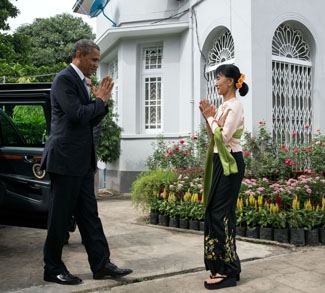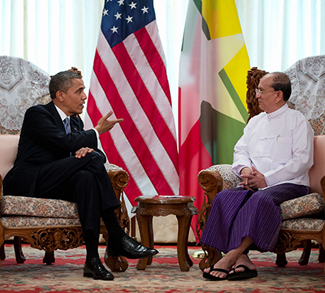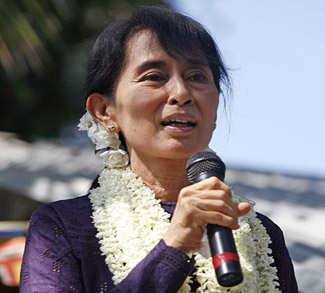After being criticised for an uncharacteristic silence regarding the violence facing Muslims in Myanmar, opposition leader Aung San Suu Kyi has finally spoken out.
Government officials recently announced that a two-child limit would be imposed on Muslim families in the western state of Rakhine, home of an ethnically distinct Muslim minority and the site of massive ethnic riots that have displaced thousands of Muslims since last summer.
Officials claim the two-child policy is designed to curtail violence against Muslims and reduce ethnic tensions, arguing that overpopulation is one of the prime drivers of the conflict. Child-limiting policies, such as the one in China, often aim to limit population growth for the sake of economic stability. However, such policies do not tend to apply only to one segment of the population. In fact, China’s famous one-child policy includes exceptions for members of minority ethnic groups. If the two-child law in Rakhine were to be enforced on Muslim families, it would be the only policy of its kind.
The two-child limit has technically been on the books since the mid-1990s, though it has not been enforced. Following the announcement of the policy’s revival, Suu Kyi spoke out, claiming that the policy is discriminatory, and contradicts the tenets of basic human rights.
Suu Kyi’s comments are significant given the enduring ethnic tension in Myanmar’s social landscape. Though best known for her stalwart defence of minorities and human rights, the deep animosity between Muslims and the Buddhist majority have put Suu Kyi in an awkward position. If she is too vocal in her support of the Muslim minority, she risks jeopardizing her rising status in mainstream Burmese politics. Her long silence on this issue has been perceived as an attempt to walk the political tightrope as carefully as possible.
However, it seems with this latest attempt to curb the Muslim population, which some have called a form of ethnic cleansing, Suu Kyi can no longer remain silent. The policy was announced by local officials, and has not been commented on by the federal government. However Suu Kyi remarked that, if true, it would constitute an illegal policy, suggesting that she and her party, the National League for Democracy, would fight against it.
Anti-Muslim violence has been spreading beyond Rakhine in recent months, and has targeted non-Rohingya Muslims. Prominent monks, deeply respected by the Buddhist majority in the country, have passionately advocated against the spread of Islam in Myanmar. This sentiment is widespread among the general population, and it remains to be seen if Suu Kyi’s comments have alienated any of her supporters, and if so, whether she will back down from her position in this regard.




